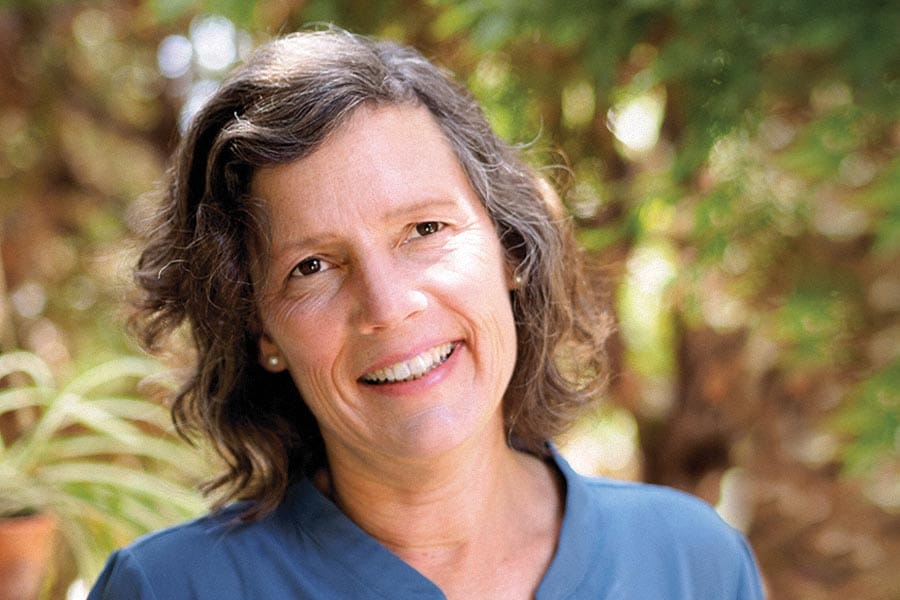Keynote Speaker Embodies the Commencement Theme

Having the Courage … to imagine possibilities, to move forward, to persevere, and to show up and speak up.
That’s the theme for this year’s commencement. It’s also the way that keynote speaker and honorary doctorate recipient Jennifer Freyd approaches life.
Imagining the possibilities
Freyd, a renowned scholar and public intellectual, founded the Center for Institutional Courage in 2020. “In essence, I want to know how people relate to the people and institutions they depend on,” she says. “I especially want to know how that dynamic is impacted by betrayal and courage.”
The center, a nonprofit dedicated to research and education, defines institutional courage as a commitment to seek truth and engage in moral action, despite unpleasantness, risk, and short-term cost. It transforms institutions into becoming more accountable, equitable, and effective for everyone.
“It … is so invigorating to create a courageous organization with an audacious mission,” Freyd says. “We want nothing less than to change the world.”
Moving forward
Freyd was already an accomplished, tenured professor at the University of Oregon in the early 1990s when she pivoted toward a new area of research: trauma psychology. With increasing frequency, media at the time were reporting on people who said they had repressed memories of exploitation—especially sexual exploitation—during childhood.
“I decided it was really important to understand and I delved into it,” she says, noting that she was met with outspoken opposition from several colleagues who disagreed with her commitment to the new field of inquiry.
“It would have been easy for me to have retreated at that moment, realizing that people did not like what I was doing, but for whatever reason, I’m just not made that way. If anything, it kind of fueled my determination to study this topic,” she says.
Over the next three decades, that determination was channeled into her award-winning book, Betrayal Trauma: The Logic of Forgetting Childhood Abuse, more than 200 scientific articles and op-eds, and invitations to consult for the White House and members of Congress.
Persevering
Freyd’s trailblazing work has not gone unchallenged. Opposition initially came from a poignant source—her parents, who launched an organization called the False Memory Syndrome Foundation in 1992. It quietly shuttered in 2019.
Long after Freyd cemented her reputation at Oregon, she came across information that the university had paid her substantially less per year than four male professors of equal rank and seniority. She attempted to resolve the matter with the university and had allies in her effort, but when that failed, she filed suit for violations of the Equal Pay Act, the Equal Protection Clause, and Title IX.
After four years of litigation, which included a U.S. district judge dismissing her suit and a federal appeals court reinstating it back to a trial court, Freyd and the university reached a settlement that covered her claims and attorney fees. In addition, the university agreed to make a $100,000 donation to the Center for Institutional Courage.
Showing up and speaking up
Freyd’s soft-spoken demeanor belies an unshakable determination to live what she believes.
“For me, it’s taking the time to think about what I really care the most about and prioritize and then say, ‘Is my living consistent with those values?’ and if I’m not, then adjusting what I am doing. I think courage gets involved because, often, it’s easier to go along with what everybody else expects and go along with the status quo, and when you detect that your own values are at odds with what you’re doing, it takes courage to change. People will resist it most likely. To me that’s what it takes whether it’s science or life.”
This story drew on a conversation that Jennifer Freyd had in 2020 with Anthropology Professor Kate Clancy on The Courageous Scientists Podcast.